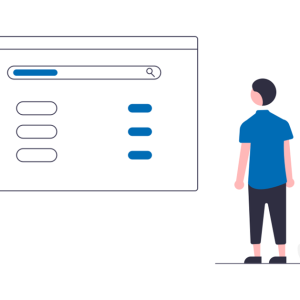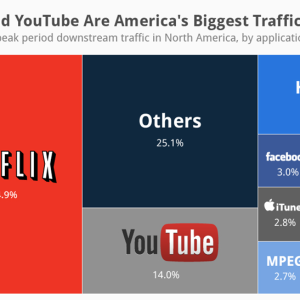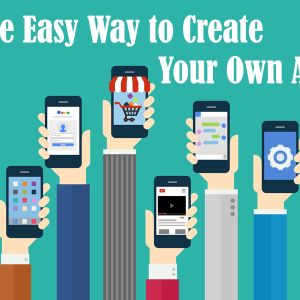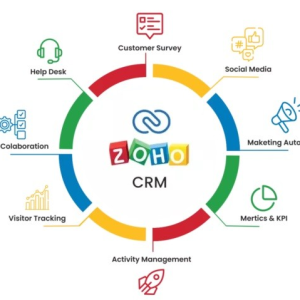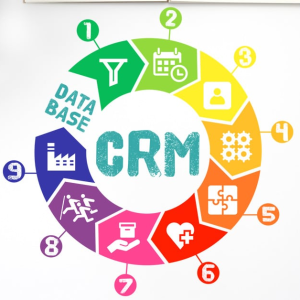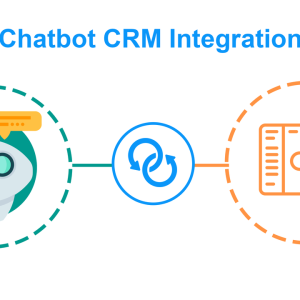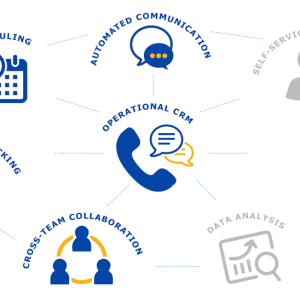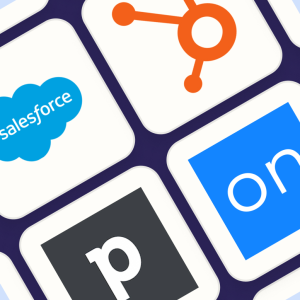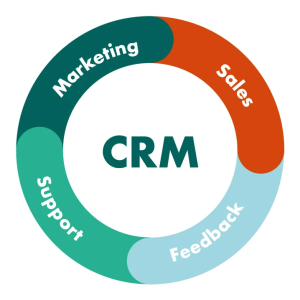Introduction
When it comes to marketing your business online, content is king, and consistency is queen. But to make your content work for you, you need to reach a wider audience using the right platforms. With so many different options out there, it can be hard to know which ones are worth your time and investment.
That’s why we’ve put together this guide to help you understand the different types of content marketing platforms, and how each can empower your digital landscape.
What Are Content Marketing Platforms?
A content marketing platform (CMP) is a software application that helps businesses plan, create, publish, and measure their content marketing efforts.
It’s an all-in-one solution that gives you the ability to control your content strategy, manage your workflow, and measure your results in one place.
A CMP can save you time and money by streamlining your content marketing process, and help you create more impactful content that resonates with your audience.
Types Of Content Marketing Platforms
There are three main types of content marketing platforms:
1. Social media management platforms
2. Content management systems
3. Analytical tools
Let’s take a closer look at each type of platform and how it can help you reach your content marketing goals.
Social Media Management Platforms
A social media management platform (SMMP) is a tool that helps businesses plan, publish, and measure their social media content.
It’s an all-in-one solution for managing your social media accounts in one place.
An SMMP can save you time by allowing you to schedule and publish your content in advance, and measure your results with built-in analytics tools.
It can also help you make sure your content is seen by the right people by giving you the ability to target your audience with specific keywords and hashtags.
Examples of SMMPs include Hootsuite, Sprout Social, and Buffer.
Hootsuite features
Hootsuite is one of the most popular social media management platforms, and for good reason. It offers a wide range of features that can help businesses of all sizes streamline their social media marketing.
Some of the key features include:
- The ability to manage all your social media accounts in one place
- A scheduling tool that allows you to publish your content in advance
- Built-in analytics so you can measure your results
- The ability to target your audience with specific keywords and hashtags
Hootsuite pricing plans
Hootsuite offers a wide range of pricing plans to suit businesses of all sizes. The cheapest plan is the Hootsuite Free plan, which allows you to manage up to three social media profiles and includes limited features.
If you need more features, the next plan up is the Hootsuite Pro plan, which starts at $19 per month and includes access to more advanced features, such as bulk scheduling and social media monitoring.
For even more features, you can upgrade to the Hootsuite Enterprise plan, which starts at $99 per month. This plan includes features like unlimited social media accounts, custom branding, and dedicated customer support.
For more information – visit https://www.hootsuite.com/
Sprout Social Features
Sprout Social is another popular social media management platform that offers a wide range of features to help businesses streamline their social media marketing.
Some of the key features include:
- Comprehensive social media analytics
- Scheduling and publishing content
- Team collaboration tools
- Engagement features
- Social CRM
- Reporting features
Sprout Social is a great platform for businesses that are looking to better understand their social media analytics and want to have more control over the content that is published. The platform offers a free trial so that businesses can try out the features before committing to a paid subscription.
Sprout social pricing plans
Sprout Social offers a variety of pricing plans to meet the needs of businesses of all sizes. The most basic plan, called “Social,” starts at $99 per month and includes the following features:
- Comprehensive social media analytics
- Scheduling and publishing content
- Team collaboration tools
- Engagement features
The next level up is the “Professional” plan, which starts at $249 per month and adds the following features:
- Social CRM
- Reporting features
- Custom branding
Finally, the “Enterprise” plan starts at $499 per month and includes all of the features of the other plans, plus:
- Single sign-on
- API access
- Priority support
Sprout Social offers a free trial so that businesses can try out the features before committing to a paid subscription. After the free trial, businesses can choose the plan that best meets their needs.
For more information – visit https://sproutsocial.com/
Buffer features
Buffer is a social media management platform that offers businesses of all sizes the ability to effectively manage their social media presence.
Some of the key features offered by Buffer include:
- A scheduling tool that allows you to publish your content in advance
- The ability to manage multiple accounts and team members
- A suite of tools to help you measure your results
- The ability to target your audience with specific keywords and hashtags
Buffer pricing plans
Buffer offers a free plan that allows businesses to manage up to three social media profiles. For businesses that need more features, Buffer offers a “Pro” plan for $15 per month and an “Enterprise” plan for $99 per month.
Each plan includes different features and benefits, so businesses can choose the one that best meets their needs.
There are several other SMMPs like ContentCal, AgoraPulse, Sendible, and CoSchedule that offer different feature sets. Choosing what’s best for your business will come down to understanding your needs and budget.
For more information – visit https://buffer.com/
Content Management Systems

A content management system (CMS) is a software application that helps businesses create, edit, publish, and manage their content.
A CMS gives you the ability to control your content in one place, and make sure it’s consistent across all your channels.
It can also save you time by automating some of the content creation processes, and help you track your results with built-in analytics tools.
Examples of CMS platforms include:
WordPress
WordPress offers a free, open-source CMS that businesses can use to create and manage their content. WordPress is a popular choice for small businesses because it’s easy to use and doesn’t require any coding knowledge.
However, WordPress does have some limitations, such as the lack of built-in eCommerce features and the need to install plugins to extend its functionality.
Visit the website https://wordpress.com/pricing/ for pricing plans.
Drupal
Drupal is another popular open-source CMS that businesses can use to create and manage their content. Drupal is a good choice for businesses that need more flexibility and control over their website.
However, Drupal can be more difficult to use than WordPress, and it also requires some coding knowledge.
More information at https://drupal.com/
Joomla
Joomla is another open-source CMS that is widely used for business websites, e-commerce stores, and online communities. Joomla offers a wide range of features and extensions that make it a versatile platform for creating content-rich websites.
Like WordPress, Joomla is easy to use and doesn’t require any coding skills to create a website. However, Joomla is more complex than WordPress and is better suited for larger websites with more content.
For more information visit https://www.joomla.org/
Sitecore
Sitecore is a powerful content management system (CMS) that offers several features to help you improve your website’s SEO and create more compelling content. It also has an extensive range of tools to help you reach a larger audience.
Sitecore’s main strength is its ability to manage large amounts of content. It offers several features that make it easy to Organize, structure, and find the content you need. It also has several tools to help you improve your content’s SEO.
Another strength of Sitecore is its ability to create more compelling content. It offers several features that make it easy to create engaging, interactive content. It also has several tools to help you reach a larger audience.
The main downside of Sitecore is its cost. It is a premium platform and thus carries a higher price tag than some of the other content marketing platforms. However, its features and benefits may be worth the cost for some businesses.
If you are interested in their offers, visit https://www.sitecore.com/
Adobe Experience Manager
How could we forget Adobe when it comes to content creation? The company offers several tools for businesses, including Adobe Experience Manager (AEM), which is a powerful content management system. AEM offers several features that make it easy to create and manage content, as well as improve your website’s SEO.
AEM is a great choice for businesses that want to create and manage large amounts of content. With its easy-to-use interface, you can quickly create and publish content, and its built-in SEO features will help your content reach a larger audience.
If you’re looking for a complete solution that will empower your digital landscape, Adobe Experience Manager is a great choice.
There are many other CMS platforms available, so it’s important to choose the one that best meets your needs.
Analytical Tools

Analytical tools are software applications that help businesses measure their content marketing efforts.
They can track your website’s traffic, social media engagement, and conversions to help you understand what’s working and what’s not.
Tools like Google Analytics and Mixpanel are essential for any content marketer who wants to measure their results and improve their strategy.
Our top 5 analytical tools include: Google Analytics, Mixpanel, KISSmetrics, Clicky, Crazy Egg
Google Analytics is the most popular analytical tool and for good reason. It’s free to use and provides a wealth of data that can be used to improve your content marketing strategy.
Mixpanel is another popular analytical tool that offers a more robust set of features than Google Analytics. However, it’s not as beginner-friendly and can be expensive for larger businesses.
KISSmetrics is a powerful analytical tool that offers a wide range of features to help you understand your website’s traffic and conversions. However, it can be challenging to use for beginners.
Clicky is an analytical tool that’s similar to Google Analytics but offers a few more features. It’s easy to use and provides detailed data that can be used to improve your content marketing strategy.
Crazy Egg is an analytical tool that offers a number of features to help you understand your website’s traffic and conversions. It’s easy to use and provides detailed data that can be used to improve your content marketing strategy.
Though the best among these five depends on your specific needs, data interpretation abilities, and the company size.
How to Choose the Right Content Marketing Platforms for Your Business
Now that you know the different types of content marketing platforms, it’s time to choose the right one for your business.
Here are a few factors to consider:
1. Your Budget
Your budget will likely be the biggest factor in your decision. If you have a limited budget, you’ll want to choose a platform that offers a free trial or a freemium model (a basic version that’s free to use with paid upgrades).
If you have a larger budget, you may want to invest in a more robust platform with all the bells and whistles.
2. Your Team’s Skill Set
Your team’s skill set is another important factor to consider. If you have a small team with limited resources, you’ll want to choose a platform that’s easy to use and doesn’t require a lot of training.
If you have a larger team with more experience, you may want to choose a platform that offers more advanced features and customization options.
3. Your Goals
Your goals will also play a role in your decision. If you’re focused on growing your audience, you’ll want to choose a platform that gives you the ability to reach more people with your content.
If you’re focused on generating leads, you’ll want to choose a platform that helps you capture leads with forms and calls-to-action.
And if you’re focused on sales, you’ll want to choose a platform that integrates with your eCommerce system.
4. Your Audience
Don’t forget to consider your audience when choosing a platform. If you’re targeting consumers, you’ll want to choose a platform that’s easy to use and has a wide reach.
If you’re targeting businesses, you’ll want to choose a platform that offers more advanced features and customization options.
5. Your Workflow
Finally, your workflow is an important factor to consider. If you’re looking for a platform that will save you time, choose one that offers automation and workflow management features.
If you’re looking for a platform that will help you measure your results, choose one with built-in analytics tools.
Once you’ve considered all these factors, you’ll be able to narrow down your choices and choose the right platform for your business.
No matter which platform you choose, remember that the most important thing is to create quality content that your audience will enjoy. With the right platform, you can make sure your content is seen by the right people and reaches your goals.
Conclusion
Content marketing platforms offer several benefits that can help you improve your digital landscape. By choosing the right platform for your business, you can ensure your content is seen by the right people and reaches your goals.
Best content strategies are curated by the best agencies. If you need help getting started, you should consider a free consultation with 12 Channels. We are a digital marketing agency with content marketing subject experts that can help you develop a strategy, create content, and distribute it to your target audience. Visit our website or contact us today to learn more.


